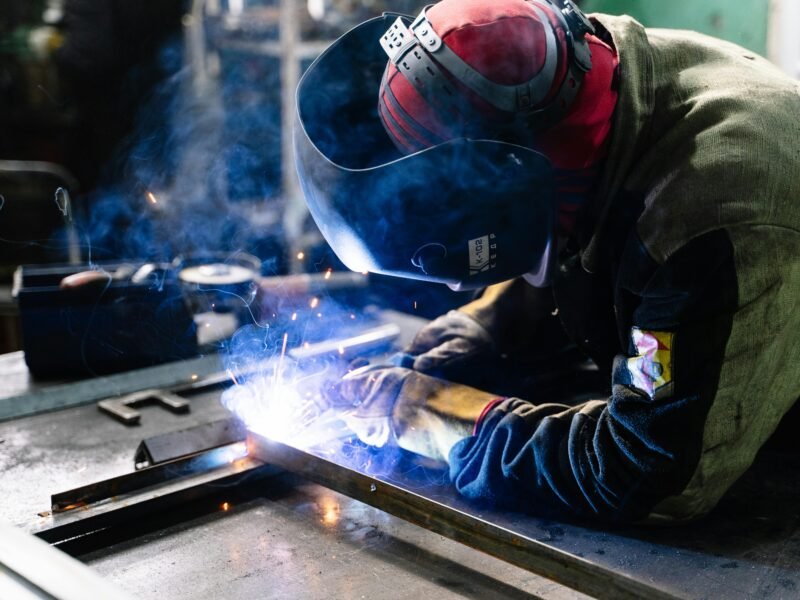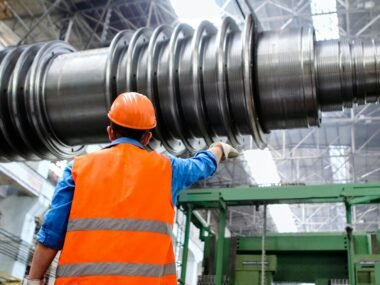Welding is a vital part of Canada’s industrial landscape, supporting industries such as construction, manufacturing, transportation, and energy. For foreign workers seeking opportunities in Canada, welding jobs present a promising avenue for career growth and financial stability.
With the country’s increasing demand for skilled tradespeople and its welcoming stance toward immigration, foreign workers can find welding opportunities that not only provide competitive wages but also contribute to Canada’s thriving economy.
Why Canada Needs Welders
Canada is known for its vast infrastructure projects, including bridges, roads, buildings, and energy systems. As the country continues to grow, the need for skilled welders has surged.
Welding is essential for joining materials such as steel, aluminum, and copper, which are used in everything from car manufacturing to construction projects. Given Canada’s reliance on these sectors, there’s an ongoing demand for welders with expertise in different welding techniques and safety standards.
The Canadian government recognizes the importance of skilled trades and continuously introduces policies to attract foreign workers with the necessary expertise to fill these crucial roles. Welding jobs present an excellent opportunity for immigrants, especially those from countries with high levels of skilled labor in trades.
Key Skills and Qualifications for Welding Jobs in Canada
Before diving into the opportunities available, it’s important to understand the skills and qualifications required for welding jobs in Canada. Employers typically look for candidates with the following skills:
- Welding Techniques: Proficiency in various welding techniques, including MIG (Metal Inert Gas), TIG (Tungsten Inert Gas), and Stick Welding.
- Blueprint Reading: Ability to read and interpret blueprints and technical drawings to understand the specifications of the project.
- Knowledge of Welding Equipment: Expertise in operating and maintaining welding machinery and tools.
- Safety Standards: A solid understanding of welding safety protocols, ensuring a safe working environment for the welder and others on the job site.
- Certifications: Welders are often required to obtain certification to work in Canada. The Canadian Welding Bureau (CWB) is the primary organization that provides welding certifications in Canada. A certified welder’s license increases employment prospects significantly.
For foreign workers, obtaining Canadian certifications or equivalencies for their skills is an essential step to ensure they meet the industry’s standards.
The Immigration Pathway for Foreign Welders
Foreign workers can take advantage of various immigration programs to enter the Canadian labor market as skilled welders. The Express Entry system, Provincial Nominee Programs (PNPs), and the Atlantic Immigration Pilot Program are some of the main routes available to foreign welders looking to work in Canada.
1. Express Entry System
The Express Entry system is the fastest and most popular route for skilled workers to immigrate to Canada. It manages three federal immigration programs: the Federal Skilled Worker Program, the Federal Skilled Trades Program, and the Canadian Experience Class.
Welders can apply through the Federal Skilled Trades Program (FSTP) if they have a job offer or sufficient experience in their trade. Candidates are awarded points based on factors like age, education, work experience, and language proficiency, and those with the highest points are invited to apply for permanent residency.
2. Provincial Nominee Program (PNP)
Each province in Canada has its own PNP, which allows them to nominate immigrants to fill labor shortages. Welders are in demand in provinces such as Ontario, British Columbia, Alberta, and Saskatchewan, where large-scale infrastructure projects are underway. Foreign workers can apply for PNPs in these provinces, and successful applicants may be nominated for permanent residency.
3. Atlantic Immigration Pilot Program (AIPP)
The Atlantic provinces of Nova Scotia, New Brunswick, Prince Edward Island, and Newfoundland and Labrador have introduced the AIPP to address labor shortages in the region. Foreign workers with a valid job offer in one of these provinces can apply for immigration through this program.
Salary Expectations for Welders in Canada
One of the major attractions of welding jobs in Canada is the competitive salary. The wage rates for welders in Canada can vary based on factors such as location, experience, and the type of welding work involved. On average, welders in Canada earn between $18 and $35 per hour, with experienced welders in high-demand regions earning upwards of $40 per hour.
The highest-paying regions for welders are typically Alberta, Ontario, and British Columbia, with Alberta leading due to the oil and gas industry, which requires a high volume of skilled welders for pipeline construction and maintenance.
Annual Salary Range:
- Entry-Level Welders: $40,000 – $50,000
- Mid-Level Welders: $50,000 – $70,000
- Experienced Welders: $70,000 – $90,000+
In addition to wages, many welding positions in Canada offer benefits such as health insurance, pension plans, and paid vacation, further increasing the attractiveness of these roles.
Where to Find Welding Jobs in Canada
Foreign workers looking for welding jobs in Canada can find opportunities through various channels:
1. Job Portals
Websites like Indeed, Workopolis, and Job Bank list welding job openings across Canada. These platforms often feature detailed job descriptions, salary expectations, and application instructions.
2. Recruitment Agencies
Agencies specializing in skilled trades can help foreign workers find welding positions in Canada. Many agencies have partnerships with employers in need of skilled welders and can assist with job placements and immigration paperwork.
3. Networking
Attending trade shows and industry conferences and connecting with Canadian welders on platforms like LinkedIn can provide valuable networking opportunities to discover unadvertised positions.
How to Apply for Welding Jobs in Canada as a Foreign Worker
Once foreign workers have identified potential employers or job openings, the application process begins. Here’s a step-by-step guide:
1. Prepare Your Resume and Cover Letter
Ensure your resume highlights relevant skills, certifications, and work experience. Tailor your cover letter to the job you’re applying for, emphasizing your qualifications and interest in relocating to Canada for work.
2. Get Your Credentials Evaluated
Before applying for welding jobs, ensure that your foreign credentials are recognized in Canada. You can use services like World Education Services (WES) to evaluate your educational qualifications.
3. Apply for a Work Visa
After securing a job offer, apply for a work visa through the Canadian embassy or consulate in your home country. The specific visa you apply for will depend on your job offer, the province you plan to work in, and the immigration program you’re applying through.
4. Complete Any Additional Requirements
Some employers may require welders to complete additional testing, such as welding assessments, to ensure they meet industry standards. Be prepared to provide proof of certifications and other qualifications as needed.
Conclusion
Welding jobs in Canada represent a valuable opportunity for foreign workers looking to build a career in a rewarding, high-demand trade. With competitive wages, a clear immigration pathway, and an ever-growing need for skilled tradespeople, Canada is an ideal destination for welders seeking a new life and career abroad.
By acquiring the right certifications, applying through the proper immigration channels, and targeting key job markets in provinces like Alberta and Ontario, foreign workers can secure their place in Canada’s thriving welding industry.
FAQs About Welding Jobs in Canada
1. What is the average salary for a welder in Canada?
The average salary for a welder in Canada ranges from $18 to $35 per hour, with more experienced welders earning upwards of $40 per hour.
2. Can foreign workers apply for welding jobs in Canada?
Yes, foreign workers can apply for welding jobs in Canada through the Express Entry system, Provincial Nominee Programs (PNPs), or the Atlantic Immigration Pilot Program (AIPP).
3. Do I need Canadian certification to work as a welder in Canada?
While it’s not always mandatory, obtaining Canadian certification from the Canadian Welding Bureau (CWB) increases your chances of finding employment in the industry.
4. Which provinces in Canada need welders?
Alberta, Ontario, and British Columbia are the provinces with the highest demand for welders, especially due to the oil and gas industry, construction, and infrastructure development projects.
By following these steps and understanding the process, foreign workers can seize the welding job opportunities available in Canada and enjoy a prosperous career.






